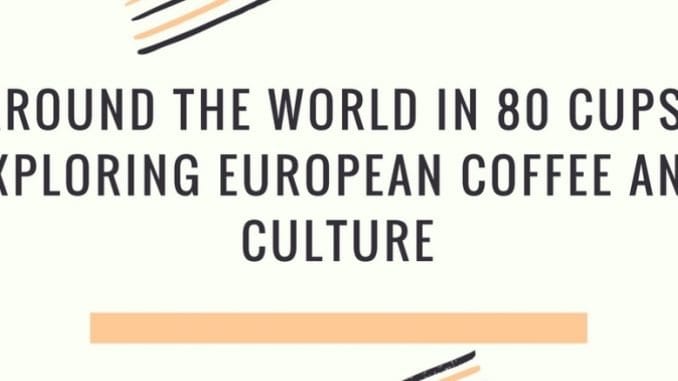
Writer Jason Huffnagle spent several months traveling across Europe, drinking coffee and sharing with us the cultures, recipes, and traditions of the beverage all across the continent. Now, Jason reflects on what he’s learned.
BY JASON HUFFNAGLE
SPECIAL TO BARISTA MAGAZINE
Photos courtesy of Jason Huffnagle
We’ve been running this series for a while, and it’s time to wrap it up! Catch up by checking out Jason’s visits to Edinburgh, London, Rome, Florence & Venice, Salzburg, Vienna, Budapest, Krakow, Warsaw, Prague, Berlin, Copenhagen, Bruges, and Paris.
Before doing the Around the World in 80 Cups series, it never occurred to me to write a travelogue—primarily because I had long considered authoring a piece in the genre to be one of the more heinous of literary crimes. Over 15 cities, four months, and an incalculable amount of coffee later, I must admit to discovering a new appreciation for it, having found that as I shared my travels with others, it helped me to engage deeper, take bigger risks, and explore more of the unknown. This of course was all done with the hope that other, would-be travelers might use the series as a resource to plan their future trips. This last entry is done in the same spirit, with the hope that I might be able to impart a last bit of travel wisdom through lessons I learned on and in preparation for the open road.
Travel well
For some, “traveling well” may still be a foreign concept. In a time where the ease and accessibility of travel is at an all-time high, it is not difficult to forget that visiting far-away lands will actually make demands of a person. Taking time to learn about a destination, the language spoken, or the locale’s history will serve the traveler well, as these make them more sensitive to subtleties that might be otherwise missed.
I suggest starting with practicalities, such as the pre-trip planning of transportation to and from accommodations. This often lead to a greater appreciation of why the city looks and feels the way it does and how its organized, in turn shedding light on cultural values and historic events. It is these aspects that add to the character of a city, something that helps enhance how a place is experienced. I also found many of the coffee shops I visited typically drew, both directly and indirectly, from these local aspects as part of their experience––like getting a pourover at POC in Vienna, which inhabits part of a 17th century church.
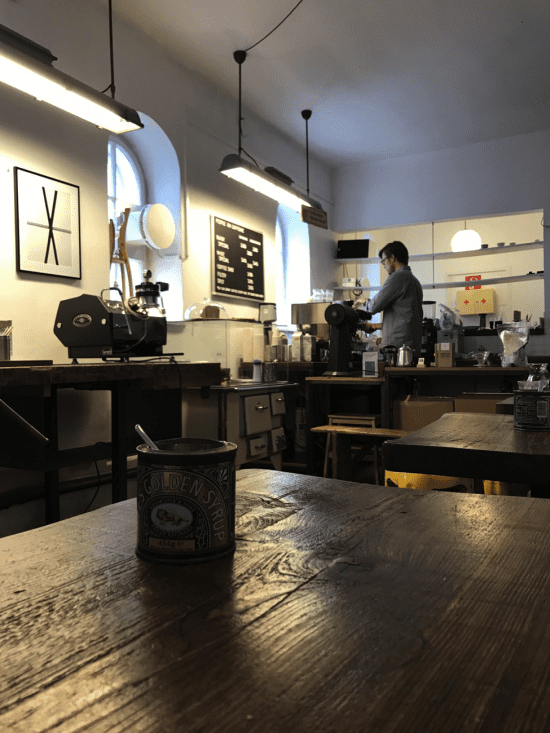
Plan accordingly
This goes beyond having a current passport and a packing list—put together an agenda with priority places (monuments, museums, restaurants, etc.) and map them out. The better organized the list (by region or city neighborhoods), the better chance the traveler has of seeing (most) everything they wanted to visit.
Going into a new city with a list of historic sites and coffee shops I wanted to visit always came in handy. It became an incredible way of determining what part of the city I would visit that day, where I would find my caffeine boost, and a means of organizing the day’s events. For example, if the plan for my day in London was to visit the British Museum, I would go to Store Street Espresso afterward, as it was on my list and just a few blocks away.
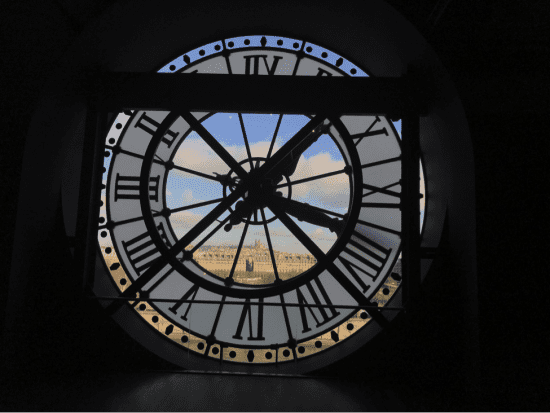
Make room for discovery
The risk with lists is a trip can turn into one giant, inflexible to-do. Thus, make room for discovery—it could leave a lasting impact. While time is always in short supply and being organized helps maximize a visit, travelers ought to be sure to explore places and things they might ordinarily skip out on.
Travel itself does not automatically change you into a metropolite, a culturally sensitive citizen of the world, so being open to the suggestions of locals will lead not only to the unexpected, but will prompt a higher degree of engagement. The plus side to going deeper—beyond getting more out of a trip—is gaining a better understanding of a place and learning more about the local culture and the many other ways life can be lived. This kind of multicultural learning, as shown in a 2010 study, can actually permanently enhance people’s creativity.
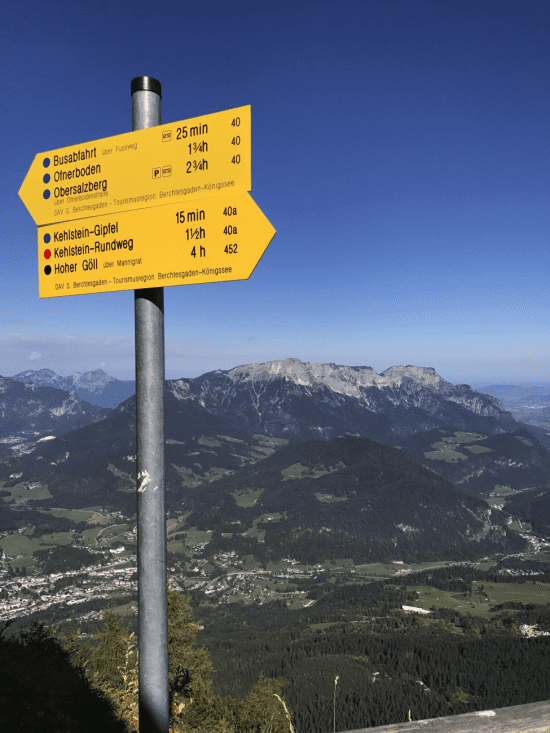
Talk shop to opens doors
As simple as it sounds, be prepared to meet people where they are. Simple questions about a person’s context may place the traveler into a vulnerable position, but finding common interests can lead to insightful dialogue and, in some cases, lifelong friendships.
When satisfying my caffeine cravings across Europe, I struck up conversations by making simple yet informed inquiries about the coffee and/or shop I was visiting. In Salzburg this led to suggestions for coffee shops in Prague, and in Prague it led to suggestions for Berlin. It brought home the idea that the coffee industry is truly a global community.
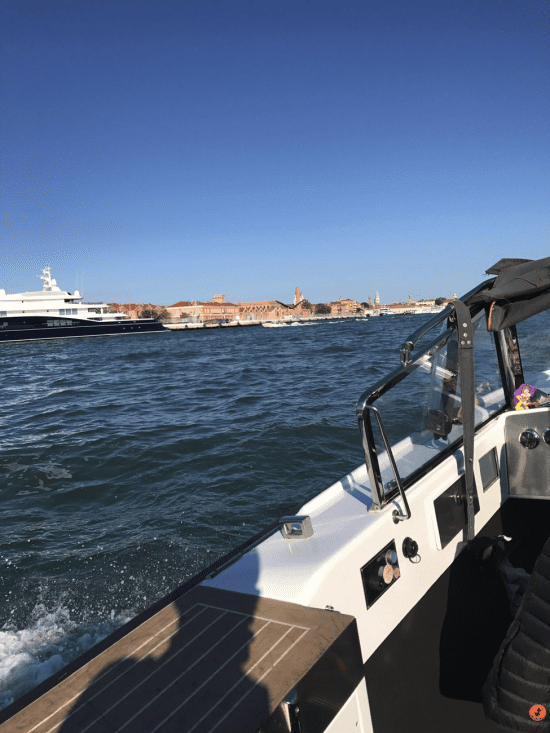
Admire a sense for service.
Last but not least, European coffee shops have a solid sense for service—something I begrudgingly admit, us American baristas could learn from. What I mean is, I consistently encountered a willingness by the baristas I met to go the extra mile and ensure a memorable experience. Most of this was not forced and seemed to come out of the desire to make an authentic connection with their customers.
So maybe the next time a customer fails to hear you shout out their completed order, take it over to them—and smile. Who knows, they may have traveled a long way to get there.
 ABOUT THE AUTHOR
ABOUT THE AUTHOR
Jason Huffnagle is a freelance writer for Barista Magazine who has worked in coffee as a barista for six years. Having left his “adult job” in the U.S. Senate, the Alaska native spent several months traveling throughout Europe. You can read about his coffee-fueled travels and other exploits by following him at @jasonhuffnagle on Twitter.


I to have thoroughly enjoyed this series. It has increased my desire to consume good coffee, and sparked a curiosity to go across the pond. DK if I ever will but these articles have made me feel like I have actually been there. Thank you for your detailed descriptions and pictures.
I’ve really enjoyed this series. I don’t know if I’ll ever make it across The Pond. But articles like this help keep the sociologist and coffee/tea nut inside me content.